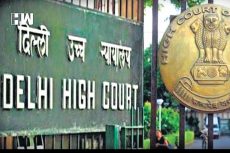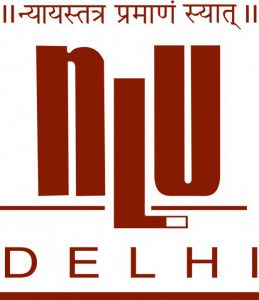Topical Highlight
 Delhi High Court Clarifies Law on Arbitrability of Trademark Disputes
Delhi High Court Clarifies Law on Arbitrability of Trademark Disputes
In this guest post, Rounak Doshi discusses the position of law on arbitrability of trademark disputes in light of the Delhi High Court’s recent decision in Golden Tobie Private Ltd. v. Golden Tobacco Ltd. He notes that the Court considered this dispute concerning the breach of a trademark licensing agreement as arbitrable and referred it to arbitration. He examines the Court decision and notes that the plaintiff relied upon the Vidya Drolia judgement to mention that the current matter involves dispute in relation to a trademark, and therefore, it will have erga omnes implications relating to sovereign functions of the state, and will not be arbitrable. However, the Court held in this case that the current matter is arbitrable because it is only indirectly connected to IPR related matters and actually concerns the agreement terms between the parties, and not their trademarks. Rounak argues that earlier, the Vidya Drolia judgment was interpreted to mean that every dispute involving any IPR would be considered non-arbitrable. However, he concludes that the recent stand of the Delhi High Court highlights that the judgment does not reflect an absolute bar over the arbitrability of disputes concerning trademarks, but rather it imposes a limitation only in relation to those matters which are concerned with the grant or registration of trademark.
Thematic Highlight

Copyright Ownership in State Board Textbooks: Impediments to Accessibility
In this post, I write about the need for a renewed emphasis on making education, online or offline, more inclusive in light of the digital divide and widening socio-economic equalities brought into stark relief by the pandemic. Equitable access to learning materials and textbooks for education, both online and offline, constitutes a basic requirement for the realisation of this goal. I argue that rewarding knowledge production and creative effort itself through maximising commercial advantage via exclusive rights are incentives that do not apply to government works whose primary motivation for creation is public dissemination. I demonstrate with examples how copyright policies of many state governments restrict the very access that the State Boards publishing textbooks were meant to facilitate. I argue that the Boards as owners of ‘government works’ under Sections 2k and 17(dd) of the Copyright Act should conduct a survey of all their works to establish costs of production and revenue. I conclude that Creative Commons (CC) licenses can make these books available to the public, particularly as e-books on the internet, permitting the re-use and modification of these works for both non-commercial as well as commercial purposes.
Other Posts

Logo Battles in Fashion Forever
In this guest post, Tanya Saraswat analyses three different logo infringement cases, Chanel v. Huawei, Apple v. A small meal planning app (Prepear) and Citroen v. Volvo, to argue that there has been a trend in these cases wherein giant companies go after smaller companies and start-ups with a collection of baseless arguments, in a bid to broaden the scope of their brand and cash in on the consequential benefits that flow from the same. She notes that judges in these cases can also pass unreasonable orders, for instance, a ban on production in a particular country based on some unreasonable arguments is unfair and arbitrary. She argues that the giant companies do not consider the financial problems that smaller companies might face where the process itself is the punishment. She notes that small companies already face capital issues and such lawsuits might exhaust their resources entirely. She concludes that empathy is also, and should be, a part of this competitive world.
 [Sponsored] USPTO and LexisNexis Reed Tech Extend Their 50-year Partnership with a New 10-year Deal
[Sponsored] USPTO and LexisNexis Reed Tech Extend Their 50-year Partnership with a New 10-year Deal
In this post, we informed our readers about an announcement from LexisNexis Intellectual Property that LexisNexis Reed Tech will continue to provide patent data and document management services to the USPTO for the next 10 years. Reed Tech has been a partner to the USPTO for over 5 decades, providing services both in the patent application and patent evaluation and assessment processes. Further details regarding the announcement can be found in the post itself.
 [Sponsored] SWAYAM (Free) Online Course on Intellectual Property by NLU Delhi (July 1 – October 31) [Register by August 31]
[Sponsored] SWAYAM (Free) Online Course on Intellectual Property by NLU Delhi (July 1 – October 31) [Register by August 31]
In this post, we informed our readers about a free online course on intellectual property starting on 1st July 2021. The course is being offered for students on the e-learning platform SWAYAM by Dr. Yogesh Pai, Assistant Professor of Law, in-charge of the IPR Chair at National Law University, Delhi. The course curriculum contains forty-one modules in four different quadrants: e-texts (3000-5000 words per module), additional readings, upto 30 minutes video lesson (per module) and assignment (containing 12 questions per module). Further details regarding the course are provided in the post itself.
Decisions from Indian Courts
- The Bombay High Court in Hindustan Unilever Ltd v. Shri Mahaveer Jain Industries, noted the defendant’s acknowledgment of the proprietary rights of the plaintiff in its distinctive original artistic work i.e., ‘Elle 18 face’ used in relation to the plaintiff’s nail polishes. The defendant submitted to the decree of the Court to be restrained permanently from infringing the plaintiff’s impugned mark. [July 2, 2021]
- The Income Tax Appellate Tribunal, Delhi in ZTE Corporation, Gurgaon v. Dy. CIT (International Taxation), Gurgaon, affirmed precedent and ruled in favour of the assessee noting that Article 12(5)of the India-China DTAA would be applicable to the sale of software in the case, and that such income from supply of software could be taxed only as business profits in terms of Article 7 of the India-China DTAA, and would not be taxed as royalty. [June 30, 2021]
- The Bombay High Court in Franco Indian Pharmaceuticals Pvt. Ltd. v. Kiama Life Sciences, granted the plaintiff ex parte ad interim relief in a case concerning allegations of trademark infringement and passing off of the plaintiff’s mark KIAVIT, by noting that the balance of convenience was in favour of the plaintiff. The Court noted that apart from the irreparable prejudice caused to the plaintiff, it must also be borne in mind that the plaintiff’s product is used as supportive therapy in diabetes control. Thus, there ought not to be the slightest confusion between these two products since the case entails a wider concern in public interest. [June 29, 2021]
- The Delhi High Court in Tata Sons Pvt. Ltd. & Anr. v. M/S Electro International & Ors., granted an ad interim injunction in favour of the plaintiff, which is the owner and registered proprietor of the trademark TATA and is engaged in the business of e-commerce through its platform tatacliq.com., which the defendant as per the plaintiff’s allegations is infringing upon via use of its domain name www.tatacliqsmart.com to sell various TATA products which are likely fake, at throwaway prices. [June 28, 2021]
- The Bombay High Court recently granted ad interim relief to Sony, restraining KAL Radio Ltd. from broadcasting any songs copyrighted by Sony Music Entertainment India Pvt. Ltd. on their FM Radio stations till July 2, 2021. Sony had alleged in the suit that KAL was broadcasting its copyrighted songs on its radio channels without complying with Section 31 of the Copyright Act which requires obtaining a mandatory statutory license. [June 29, 2021]
Other News
- The Indian Patent Office ruled in favour of Venus Remedies Limited in a 10-year legal battle which challenged a patent claimed by French pharmaceutical business SCR Pharmatop for producing intravenous paracetamol solution in India.
- MSD India managing director Rehan A. Khan said the company is in talks with various Indian pharma makers about granting voluntary licences for its investigational Covid-19 treatment molnupiravir. He also said that MSD wants to join the UN-backed Medicines Patents Pool (MPP) to expand access to the drug.
- The share prices of Bajaj Healthcare rose as the company moved the Patent Office to seek a compulsory license for Covid drug Baricitinib.
- In India, Twitter has lost its intermediary role and is now editorially liable for the content that users publish.
- In light of Twitter blocking IT Minister R.S. Prasad over concerns of US copyright law infringement, Aprameya Radhakrishna, the CEO of Koo, an Indian microblogging and social networking service, noted that taking direct action on an account without providing the user with the full context of the alleged violation and an opportunity to contest is equivalent to a social media platform making the ultimate decision and not functioning as an intermediary.
- In an article in The Indian Express, Aashish Aryan explains what the DMCA notices are all about and how they are meant to protect intellectual property online.
- The Delhi High Court refused to stay the release of the film, “Nyay: The Justice”, based on the life of deceased Bollywood actor Sushant Singh Rajput, noting that certain celebrity rights were protected as IPRs, and were assignable and licensable. Some of these could survive the death of the celebrity, however, the right to privacy was not among them.
- A UK high court ruled that Bitcoin.org can no longer distribute the 2008 white paper that defines bitcoin on its website, based on the claims of Craig Wright, a computer scientist, who is said to have written the original document and hold copyright in it.
- ADT Inc., the largest home-security business in the United States, has filed a patent infringement lawsuit in the U.S., attempting to restrain imports of Vivint Smart Home Inc.’s devices, escalating a legal battle over the booming American market for smart-home technologies.
